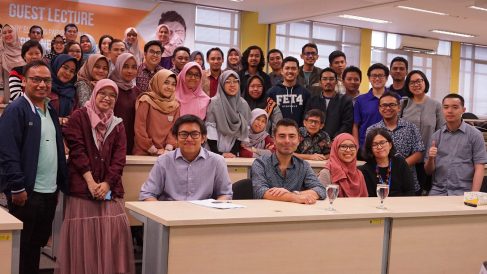Gender Inequality and Economic Development
Melva Costanty – Humas FEB UI
Nurlaily Setyasari ~ International Office FEB UI
DEPOK – On Wednesday (06/11/2019), FEB UI Postgraduate Program of Economics held a guest lecture entitled “Gender Inequality and Economic Development”. The event which took place from 14.00 WIB until 16.00 WIB was held in Room R.401-402, Pascasarjana Building, Faculty of Economics and Business, University of Indonesia. Mr Elissaios Papyrakis, PhD from the International Institute of Social Studies, Netherlands was the speaker at this seminar. Mr Elissaios Papyrakis is an Associate Professor with 43 journal articles & books as well as having 2321 citations.
The lecture opened with welcoming remarks from Mr Jahen Fachrul Rezki, PhD. In the lecture, Mr Papyrakiss cited the assessment from the World Economic Forum which measured to what extent women have achieved equality with men. From the report, 96% of the gaps between men and women in the health dimension have been closed, as well as 95% for educational attachment. However, only 58% of economic participation gap has been closed, and even smaller for political participation of only 23%. He also examined the variation between gender inequalities across countries, in which Western Europe has the smallest gap and Middle East-North Africa has the largest gap.
Mr Papyrakiss argued that the problem of gender inequalities lies behind the bias of expectation, such as the assumptions that men would be more suitable for the leadership role. This stereotypical effect would have implications for the gender wage gap. Then, he explained the link between economic development and gender inequality. For example, women empowerment would correlate with beneficial family outcomes such as child health, nutrition and education. He also cited concept such as Household Bargaining Model on proving how female role affects family welfare. Lastly, he also reflects what kinds of policy intervention that would support gender equality.
Finally, the guest lecture ended with a QnA session and token appreciation exchange. We very much thanks to Mr Elissaios Papyrakis, PhD for shedding lights on the link between gender inequality and economic development to the FEB UI students. The knowledge given would hopefully be the guidance for policymakers and academics of FEB UI in the future. (IOFEB/NS)

